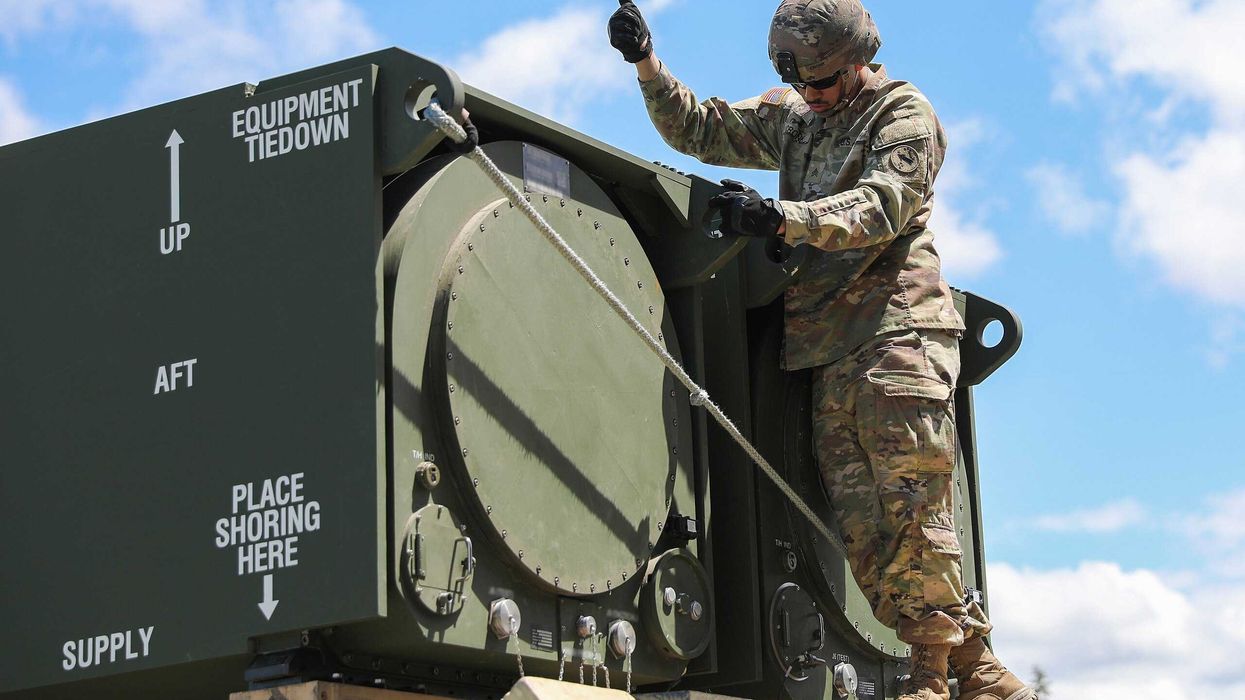On May 1, roughly 4000 employees of defense manufacturers — including Lockheed Martin — went on strike. And in another strike, around 3000 employees of Pratt & Whitney (which manufactures essential components of Lockheed Martin’s F-35 fighter jet) walked off the job in Hartford, Connecticut.
In an article published by Politico on October 27, reporter Christopher Leonard warns that dissatisfaction among employees of defense manufacturers is problematic for the United States from a national defense standpoint.
"Something is going wrong on the assembly lines of America's arsenal of democracy, and it's happening at a moment of crisis," Leonard explains. "The White House, Pentagon and America's overseas allies are all demanding that defense companies ramp up production to meet the needs of a dangerous geopolitical moment. America is running short of missiles, munitions and battleships. Allies are waiting years for deliveries. Even the Pentagon has to stand in line and wait for delayed shipments of major weapons, like Hellfire missiles, Javelin rocket launchers and sophisticated air defense interceptors."
Leonard continues, "America is trying to surge its military capacity to produce more munitions, missiles and ships, but to do so, it must rely almost entirely on a group of five Fortune 500 defense companies. And none of these companies seem to be on war footing."
According to Leonard, Lockheed Martin and others are paying too much attention to Wall Street and not enough attention to their employees.
"Instead of hiring more workers and paying workers more in an effort to retain them," Leonard reports, "these companies are far more focused on meeting the demands of Wall Street, trying to entice investors and boost their stock price by cutting costs, as well as using billions of dollars in revenue to pay handsome dividends and buy back shares of stock. Last year, for example, Lockheed Martin gave $6.8 billion in buybacks and dividends directly to its shareholders, which amounted to nearly 10 percent of the company's total revenue and was larger than the $5.3 billion it kept in profits."
Leonard adds, "The same year, RTX, formerly called Raytheon, paid $3.7 billion to shareholders, General Dynamics paid $3 billion and Northrop Grumman paid $3.7 billion. The billions of dollars they send back shareholders each year means that there is less money to go toward paying, hiring or retaining their employees. As a result, jobs in defense manufacturing are becoming less and less attractive at a time when they need to be getting far more attractive."
In 2022, Billy Masters, a missile machinist and former union president, warned, "We cannot keep people. They bring them in on the low end of the pay scale.… They want cheaper wages. They want to keep the wage down. We're up against profit over anything else."
Three years later, Randy Tejada — a U.S. Army veteran and one of the Lockheed Martin workers who went on strike — has a similar warning.
Tejada told Politico, "I’m definitely looking for other options, since I see this company doesn’t take people that serious."
Read Christopher Leonard's full article for Politico at this link.


